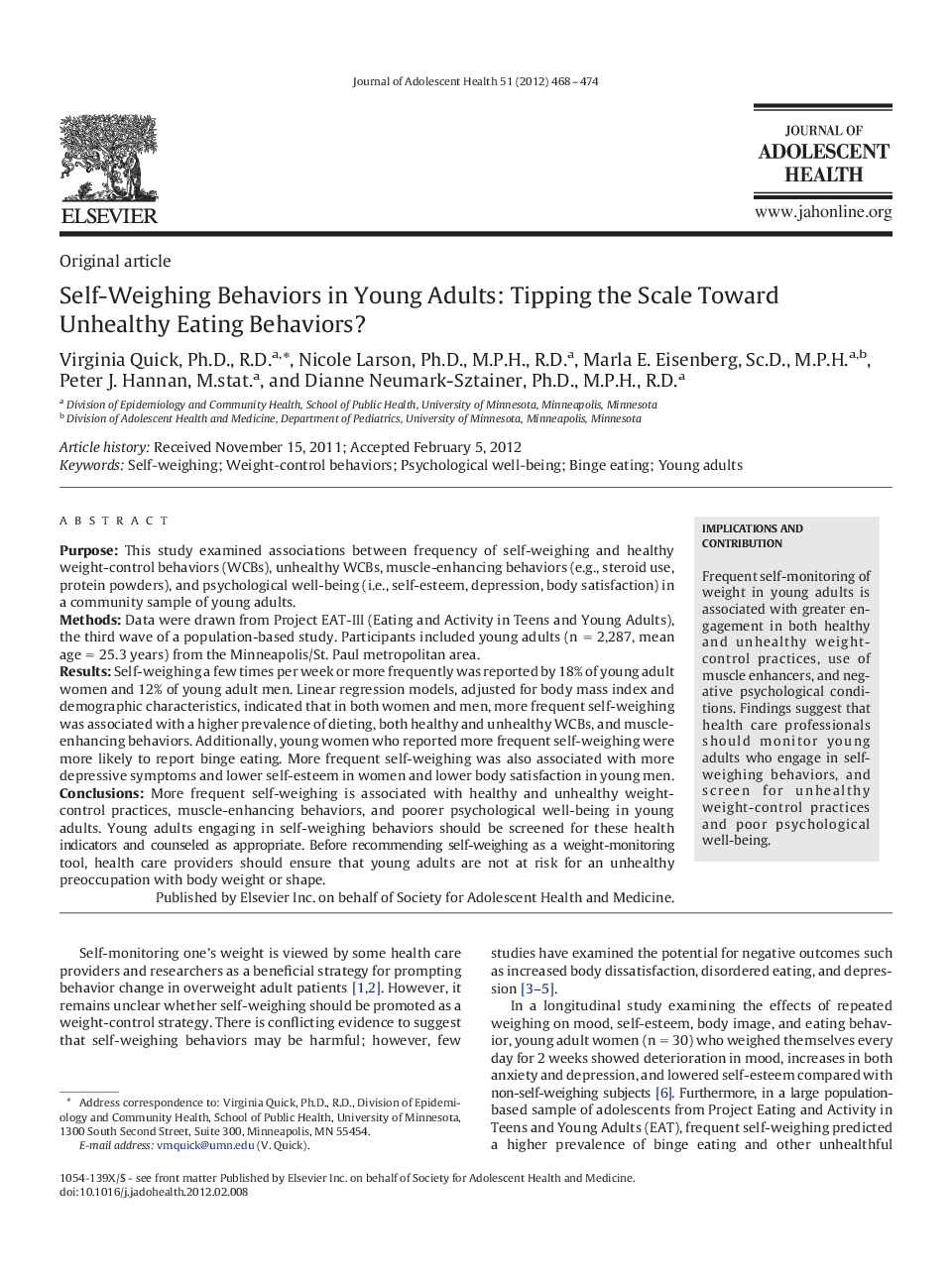| کد مقاله | کد نشریه | سال انتشار | مقاله انگلیسی | نسخه تمام متن |
|---|---|---|---|---|
| 1078666 | 950465 | 2012 | 7 صفحه PDF | دانلود رایگان |

PurposeThis study examined associations between frequency of self-weighing and healthy weight-control behaviors (WCBs), unhealthy WCBs, muscle-enhancing behaviors (e.g., steroid use, protein powders), and psychological well-being (i.e., self-esteem, depression, body satisfaction) in a community sample of young adults.MethodsData were drawn from Project EAT-III (Eating and Activity in Teens and Young Adults), the third wave of a population-based study. Participants included young adults (n = 2,287, mean age = 25.3 years) from the Minneapolis/St. Paul metropolitan area.ResultsSelf-weighing a few times per week or more frequently was reported by 18% of young adult women and 12% of young adult men. Linear regression models, adjusted for body mass index and demographic characteristics, indicated that in both women and men, more frequent self-weighing was associated with a higher prevalence of dieting, both healthy and unhealthy WCBs, and muscle-enhancing behaviors. Additionally, young women who reported more frequent self-weighing were more likely to report binge eating. More frequent self-weighing was also associated with more depressive symptoms and lower self-esteem in women and lower body satisfaction in young men.ConclusionsMore frequent self-weighing is associated with healthy and unhealthy weight-control practices, muscle-enhancing behaviors, and poorer psychological well-being in young adults. Young adults engaging in self-weighing behaviors should be screened for these health indicators and counseled as appropriate. Before recommending self-weighing as a weight-monitoring tool, health care providers should ensure that young adults are not at risk for an unhealthy preoccupation with body weight or shape.
Journal: Journal of Adolescent Health - Volume 51, Issue 5, November 2012, Pages 468–474